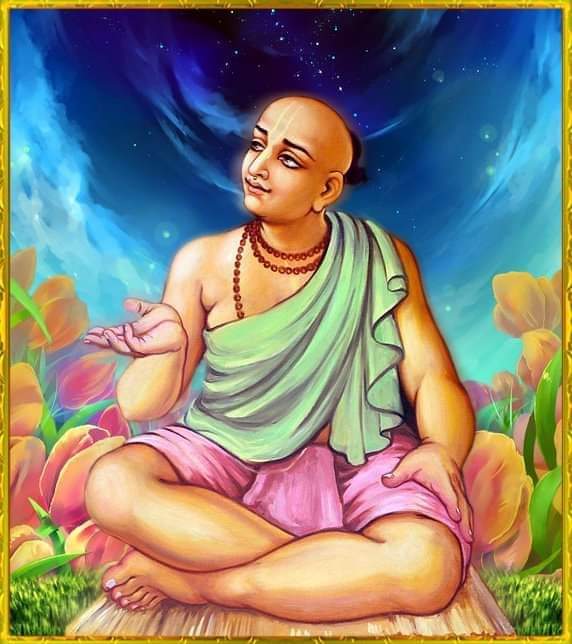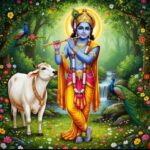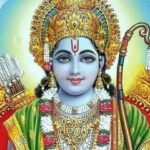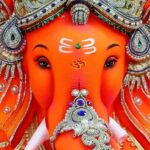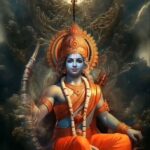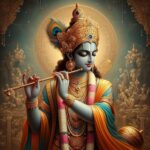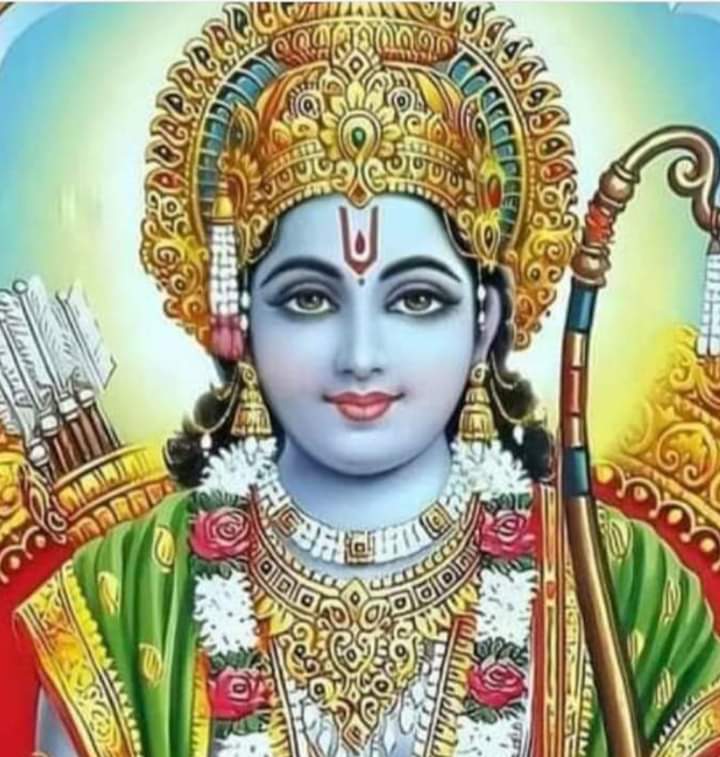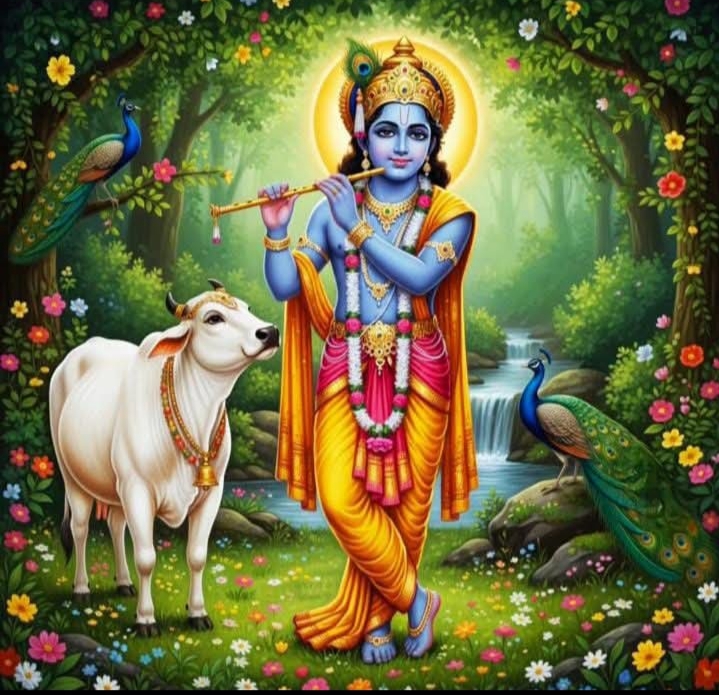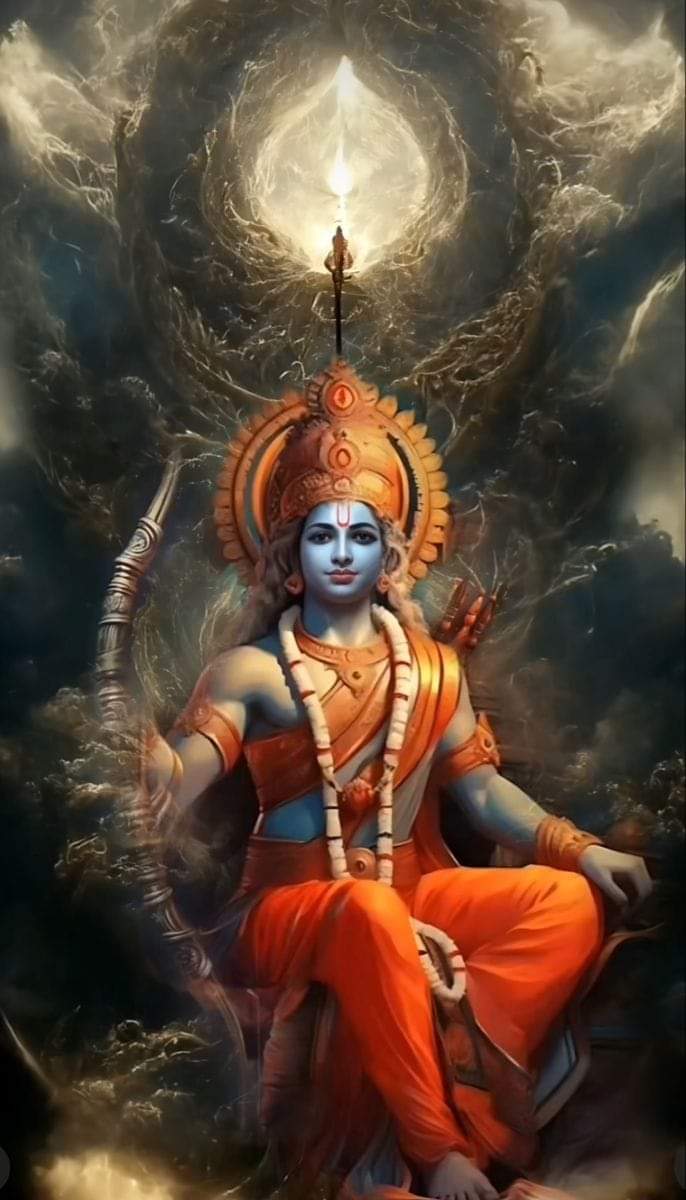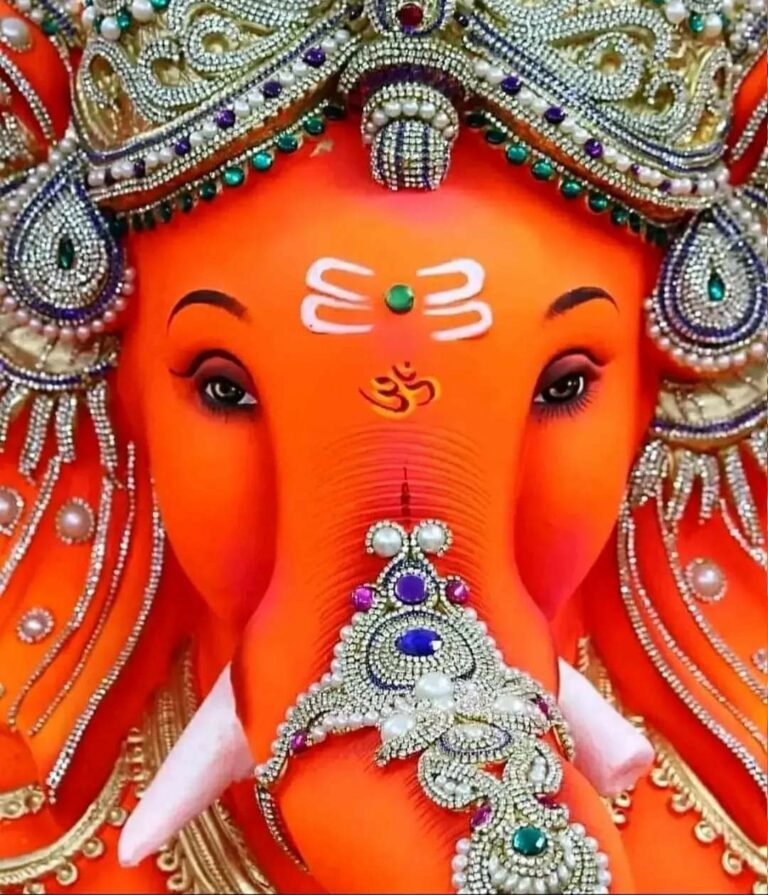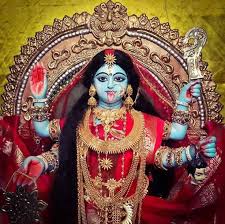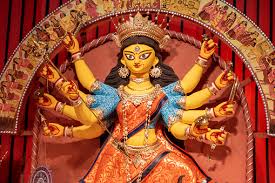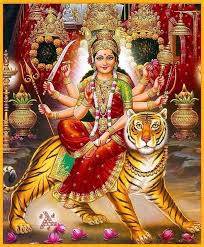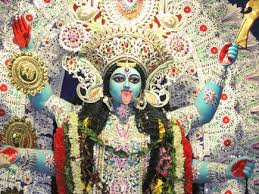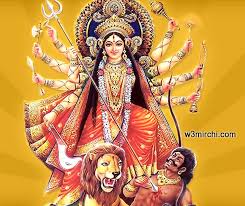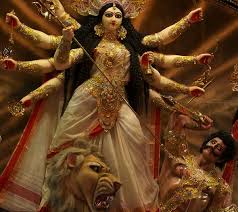श्री हरि
*औ कि जहाँ काला हिरन स्वेच्छा से विहार न करता हो, जहाँ ब्राह्मणों की भक्ति न होती हो और जहाँ शुचि, पवित्र सज्जन और विद्वान पुरुष निवास न करते हों, वे ही देश अपवित्र हैं। एक स्थान पर कीकट देशों के नाम भी गिनाये हैं। यथा-
अंगबंगकलिंगेषु सौराष्ट्रमगधेषु च।
तीर्थयात्रां विना गत्वा पुनः संस्कारमर्हति।।
अर्थात ‘अंगदेश, बंगदेश, कलिंगदेश, सौराष्ट्र ओर मगधदेश यदि इनमें तीर्थयात्रा बिना चला भी जाय तो उसे फिर से संस्कार करना चाहिये। ‘पूर्वकाल में ऐसी मान्यता थी कि बंगदेश में प्रवेश करते ही ब्राह्मण अपवित्र हो जाता है। महाभारत में स्थान-स्थान पर इसका उल्लेख आया है। यहाँ तक कि तीर्थयात्रा के समय पाण्डव के साथ जो ब्राह्मण थे, वे बंगदेश की सरहद आते ही उने साथ से लौट गये।
तीर्थयात्रा के निमित्त भी उन्होंने बंगदेश में जाना उचित नहीं समझा। इसमें असली रहस्य क्या है, इसे तो सर्वज्ञ ऋषि ही समझ सकते हैं, किन्तु आजकल तो कोई इस प्रकार का आग्रह करने लगे तो उसे पागलखाने में भेजने के लिये सभी लोग सहमत हो जायँगे। जहाँ पर ऐसे देशों में न जाने के सम्बन्ध में वाक्य मिलते हैं, वहाँ ऐसे भी अनेकों प्रमाण भरे पड़े हैं कि भगवत-भक्त की लीलास्थली कोटि तीर्थों से भी बढ़कर पावन बन जाती है। जिस भूमि को महाप्रभु गौरांगदेव, परमहंस रामकृष्णदेव, विजयकृष्ण गोस्वामी तथा जगद्बन्धु ऐसे भगवत-भक्तों ने अपनी पदधूलि से पावन बनाया हो, जिसमें राजा राममोहन राय, महर्षि देवेन्द्रनाथ ठाकुर तथा ब्रह्मानन्द, केशवचन्द्र- जैसे भगवत-भक्त, समाज-सुधारक उत्पन्न हुए हों, जिस भूमि ने देशबन्धु चित्तरंजन दास- जैसे देशभक्त को जन्म दिया हो, आज भी जिसमें अरविन्द-जैसे योगी, रविन्द्र-जैसे विश्व-कवि, जगदीशचन्द्र वसु- जैसे जगत-विख्यात विज्ञान-वेत्ता और सुभाषचन्द्र- जैसे अनन्य देशभक्त सम्पूर्ण भारत का मुख उज्ज्वल कर रहे हों, उस देश को हम अब कीकट-देश कैसे कह सकते हैं? जब होगा, तब रहा हो, आज तो वही देश परम पावन बना हुआ है, चैतन्यदेव की लीला-भूमि के लिये भावुक भक्तों के हृदय में व्रजभूमि से कम आदर नहीं है।
नवद्वीप तो भक्तों के लिये पूर्व वृन्दावन ही बना हुआ है। जहाँ श्रीकृष्ण चैतन्य-जैसे परम भावुक और साक्षात प्रेम की सजीव मूर्ति प्रेमावतार महापुरुष का प्राकट्य हुआ हो, उसका महत्त्व वृन्दावन के सदृश होना ही चाहिये।
बंगाल भाव-प्रधान देश है। बंगाली प्रायः हृदय-प्रधान होते हैं, उन्हें ललित कलाओं से बहुत अनुराग है, वे प्रकृतिप्रिय हैं। उनका हृदय प्रकृति के साथ मिला हुआ है। प्रकृति में होने वाले परिवर्तनों का उनके हृदय-पटल पर गहरा प्रभाव पड़ता है, वे भावुक होते हैं, इसका प्रमाण उनके रहन-सहन में, खान-पान तथा उत्सव-पर्वों में प्रत्यक्ष मिलता है। बंगला-भाषा का अधिकांश साहित्य भावुकता-प्रधान ही है, उनमें उपन्यास, नाटक, ललितकाव्य आदि विषयों का ही प्राधान्य है। कुछ विशेष श्रेणी के पुरुषों को छोड़कर सर्वसाधारण लोग निष्काम कर्मों से एकदम अनभिज्ञ हैं। वे इस बात को प्रायः समझ ही नहीं सकते कि बिना कामना के भी कर्म हो सकता है। वहाँ जितना भी पूजा-पाठ और धार्मिक कृत्य होता है सभी सकाम भावना से किया जाता है।
संन्यास-धर्म का प्रचार बंगदेश में बहुत ही कम है। अब तो वहाँ कुछ-कुछ संन्यास-धर्म का प्रचार होने लगा है, नहीं तो पहले इसका प्रचार नहीं के ही बराबर था। अब भी बंगाल में मधुकरी-भिक्षा की परिपाटी नहीं है। बना-बनाया अन्न वहाँ भिक्षा में कठिनता से मिल सकेगा। अधिकांश बंगाली संन्यासी इधर उत्तर-भारत की ही ओर आकर रहने लगते हैं। अब भी उत्तर-भारत में बहुत-से सुयोग त्यागी और विरक्त बगाली महात्मा निवास कर रहे हैं। बंगदेश शक्ति-उपासक है। शक्ति की उपासना बिना रजोगुण के हो नहीं सकती। कुछ शाक्त भक्त सात्त्विक-पद्धति से फल-फूलों का ही बलिदान देकर शक्ति-उपासना करते हैं, किन्तु ऐसे भक्तों की संख्या उँगलियों पर ही गिनी जा सकती है, अधिकांश तो गरम-गरम रक्त द्वारा ही कालीमाई को प्रसन्न करने वाले भक्त हैं। प्रतिवर्ष दोनों नवरात्रों में करोड़ों जीवों का संहार देवी के नाम से किया जाता होगा।
भारतवर्ष भर में बंगाल-प्रान्त में ही खूब धूमधाम से नवरात्र मनाया जाता है, जिनमें लाखों बकरे कालीमाई के ऊपर चढ़ाये जाते हें। बंगालियों में निरामिषभोजी भी बहुत ही कम मिलेंगे। यदि बहुत-से मांस न भी खाते होंगे, तो मछली के बिना तो वे रह ही नहीं सकते। मछली के मांस की वे मांस में गणना नहीं करते। यहाँ तक कि बहुत-से वैष्णव भी मांस न खाते हुए भी मछली का सेवन करते हैं। केवल विधवा स्त्रियों को एकादशी के दिन मछली खाना मना है या कोई-कोई वैष्णव या ऊँची श्रेणी के भट्टाचार्य बचे हुए हैं, नहीं तो मछली के बिना बंगाली रह ही नहीं सकते। जिस बंगाली को स्नान के पूर्व शरीर में मलने को तेल नहीं मिला और भोजन के समय मछली नहीं मिली उसका जीवन व्यर्थ ही समझा जाता है, वह अपने समाज में या तो अत्यन्त ही दीन-हीन होगा या कोई परम योगी। सर्वसाधारण लोगों के लिये ये दोनों वस्तुएँ अत्यन्त ही आवश्यक समझी जाती हैं। जिस समय की हम बातें कह रहे हैं, उस समय बंगाल की बड़ी ही बुरी दशा थी।
देशभर में मुसलमानों का आतंक छाया हुआ था, मनुष्य धर्म-कर्म से हीन होकर नाना प्रकार के पाखण्ड-धर्मों का आश्रय किये हुए थे। वाम-मार्ग का सर्वत्र प्रचार था। स्थान-स्थान पर घोर तान्त्रिक-पद्धतियों का अनुष्ठान होता हुआ दृष्टिगोचर होता था। मांस, मदिरा, मैथुन आदि पाँच वाममार्गियों के मकानों का सर्वत्र बोल-बाला था। शाक्त-धर्म का भी प्राबल्य था। बकरे-भैंसे का बलिदान तो साधारण-सी बात समझी जाती थी, कहीं-कहीं मनुष्यों तक की बलि दे दी जाती थी। (अब भी साल-दो साल में एक-आध ऐसी घटना सुनने में आ जाती है।) ब्राह्मण लोग अपने हाथों में खड्ग लेकर बलिदान करते। वैष्णव-धर्म की लोग खिल्लियाँ उड़ाते थे, वाद-विवाद करते रहना ही विद्या का मुख्य प्रयोजन समझा जाता। भक्ति करना मूर्खों ओर अनपढ़ों का काम समझा जाता। इतना सब होने पर भी छूआछूत और छोटे-बड़ेपन का भूत सबके सिर पर सवार था। यदि कहीं किसी छोटी जाति वाले न उच्च-जाति के पवित्र पुरुष को छू लिया तो उसका धर्म ही भ्रष्ट हो गया। किसी विधवा ने मुसलमान से बात भी कर ली तो वह पतित हो गयी। समाज के वह किसी भी काम की नहीं रही।
इन सभी कारणों से मुसलमानों की संख्या बढ़ने लगी। नीची जाति के समझे जाने वाले पुरुष हिन्दू-धर्म की छत्र-छाया को छोड़कर नवीन इस्लाम-धर्म की शरण में आने लगे। इसी के परिणामस्वरूप तो आज बंगाल-प्रान्त में हिन्दुओं की अपेक्षा मुसलमानों की ही संख्या अधिक है। सम्भवतः 52-53 फीसदी मुसलमान हैं। बंगाल में ब्राह्मण, वैद्य और कायस्थ ये ही तीन जाति शिक्षित और कुलीन समझी जाती थीं। जिनमें कायस्थों को तो ब्राह्मण लोग शूद्र ही बताते थे। उस समय कायस्थों में विद्या का खूब प्रचार था। राजकाजों में उनकी बुद्धि भी तीक्ष्ण थी। वे आचार-विचार में भी हिन्दुओं की कुछ परवा नहीं करते थे। वे मुसलमानों के नाम से ही ब्राह्मणों की भाँति दूर नहीं भागते थे।
उनका खान-पान, आचार-व्यवहार मुसलमानों से मिल जाता था। इसलिये बंगाल में अधिकांश जमींदार, ताल्लुकेदार और राजा कायस्थ ही थे। राजशक्ति और शासनशक्ति हाथ में होने के कारण बहुत-से विद्वान ब्राह्मण भी उनके दरबार में रहते थे। मुख से चाहे उन्हें शूद्र भले ही कहें, किन्तु उनके साथ ब्राह्मणों का सभी बर्ताव क्षत्रिय राजाओं का-सा ही था। उन्हें शास्त्रों का अध्ययन कराते, उनका दान-प्रतिग्रह ग्रहण करते, उनसे श्राद्ध, यज्ञ-यागादि कार्य भी ब्राह्मण लोग कराते ही थे, इस प्रकार क्षात्रधर्म उस समय बंगाल में कायस्थों में ही था। कायस्थों में संस्कृत के बड़े-बड़े ऊँचे विद्वान उस समय मौजूद थे। बहुत-से कायस्थ जमींदारों के तो नाम भी मुसलमानों की ही तरह होते थे।
जैसे बुद्धिमन्त खाँ, रामचन्द्र खाँ आदि-आदि। महाप्रभु गौरांग के प्रादुर्भाव के समय गौड़-देश के शासक सुबुद्धि खाँ या सुबुद्धि राय थे। उनके यहाँ हुसेन खाँ नामक बड़ा ही आत्माभिमानी और कुशाग्रबुद्धि भृत्य था। एक बार कोई काम बिगड़ जाने पर राजा ने उसकी पीठ पर क्रोध में चाबुक मार दिया। इससे वह आत्माभिमानी भृत्य जल उठा और उसने मन-ही-मन राजा को राज्यच्युत करने की कठोर प्रतिज्ञा की। बुद्धिमान तो वह था ही, बड़े-बड़े अधिकारी राजा से मन-ही-मन द्वेष करते थे, उसने सभी को साम-दान, दण्ड और भेद आदि नीतियों का आश्रय लेकर राजा को कैद कर लिया और आप स्वयं गौड़-देश का राजा बन बैठा। सुबुद्धि राय जब हुसेन खाँ के बन्दी थे तब उसकी स्त्री ने उसे सलाह दी कि इसे जान से मार दो, किन्तु हुसेन खाँ इतनी नीच प्रकृति का मनुष्य नहीं था, उसने कहा-‘चाहे इसने मेरे साथ कैसा भी चैतन्य-कालीन बंगाल बर्ताव किया हो, आखिर तो यह मेरा स्वामी रहा है और मैंने इसका नमक खाया है, मैं इसकी जान नहीं लूँगा।’ यह कहकर उसने राजा को छोड़ दिया। किन्तु उसने अपने जूँठे मिट्टी के बर्तन का पानी जबरदस्ती इनके मुँह में डाल दिया।
राजच्युत और धर्मभ्रष्ट हुए सुबुद्धि राय ने गौड़-देश के पण्डितों से इस पाप के प्रायश्चित्त की व्यवस्था चाही। धर्म के मर्म को भलीभाँति जानने वाले विद्वान ब्राह्मणों ने बहुत ही बढि़या व्यवस्था बतायी। उन्होंने कहा- ‘इस पाप का प्रायश्चित्त प्राणत्याग के अतिरिक्त दूसरा कोई है ही नहीं। सो भी प्राणों का त्याग या तो गरम घृत पान करके किया जाय या धान के तुषारों में धीरे-धीरे सुलगाकर शरीर जलाया जाय।
जन्म से राजसुखों को भोगने के आदी और ऐश-आराम में पले हुए सुबुद्धि राय की बुद्धि ने इस व्यवस्था को स्वीकार नहीं किया, वे कोई और हल की व्यवस्था लेने के निमित्त वाराणसी के पण्डितों के पास गये। काशी के पण्डित भी कोई घाट थोडे़ ही थे, शास्त्रों का अध्ययन तो उन्होंने भी किया था, उन्होंने भी उसी व्यवस्था को बहाल रखा। प्राण त्याग ने में असमर्थ सुबुद्धि खाँ उधर-इधर भटकते हुए अपने जीवन को बिताने लगे। कालान्तर में जब महाप्रभु वाराणसी पधारे तब ये उनका नाम सुनकर उनके शरणापन्न हुए और अपनी सम्पूर्ण कथा कह सुनायी। सब कुछ सुनकर प्रभु ने आज्ञा दी- ‘अनिच्छापूर्वक प्राणों के त्याग से कोई लाभ नहीं। वृन्दावनवास करके अहर्निश कृष्ण-स्मरण करो और भक्त-महात्माओं की सेवा-पूजा करो। भगवन्नाम से ही करोड़ों जन्मों के पाप क्षय हो जाते हैं, एक जन्म की तो बात ही क्या?
प्रभु की आज्ञा शिरोधार्य करके वे वृन्दावन में जाकर रहने लगे। कहते हैं- वे जंगलों में जाकर सूखी लकडि़याँ ले आते। वे तीन या चार पैसे जितने में भी बिक जातीं उन्हें बेचकर एक पैसे के चने खाकर तो स्वयं निर्वाह करते थे, शेष पैसों को एक दूकानदार के यहाँ जमा कर देते थे। उन बचे हुए पैसों का तेल खरीदकर बंगाली गरीब यात्रियों तथा भक्तों को स्नान के पूर्व लगाने के लिये देते थे। धन्य है, भक्ति हो तो ऐसी हो। इस प्रकार महात्मा सुबुद्धि राय जी ने अपने पानी पीने के पाप का ही प्रायश्चित्त नहीं किया, जन्म-जन्मान्तरों के पापों का प्रायश्चित्त कर डाला।
हुसेन खाँ ने राजगद्दी पर बैठते ही अपना शासन जमाने के लिये स्थान-स्थान पर अपने काजियों को नियुक्त किया। बहुत-से लोगों को इलाकों का ठेका दिया। वे एक प्रकार से पट्टेदार जमींदार ही समझे जाते थे, लोगों से लगान वसूल करके नियमित रकम तो बादशाह को देते, शेष जो बचती उसे अपने पास रख लेते। इस प्रकार नवद्वीप में बुद्धिमन्त खाँ, हरिपुरग्राम में गोवर्धनदास मजूमदार, कुलीनग्राम में मालाधर तथा खेतूरग्राम में कृणानन्ददत्त आदि इन कायस्थ जमींदारों को भी ठेके दिये गये। अधिकांश में ठेकेदार मुसलमान अथवा कायस्थ ही होते थे। नवद्वीप में चाँद खाँ नाम के एक क़ाज़ी की नियुक्ति की गयी और जगन्नाथ तथा माधव (जगाई-मधाई) नाम के क्रूरकर्मा दो ब्राह्मण भाइयों को वहाँ का कोतवाल बनाया गया। नवद्वीप के बेलपोखरिया नामक मोहल्ले में चाँद खाँ की कचहरी थी। उस समय क़ाज़ी मुंसिफ या जज का काम करते थे, वे हिन्दू-मुसलमानों के झगड़ों का फैसला करते थे, इसी प्रकार का एक मुलुक नाम का क़ाज़ी शान्तिपुर के समीप गंगा जी की धारा के पास रहता था।
नवद्वीप उस समय बंगाल भर में विद्या का सर्वश्रेष्ठ केन्द्र समझा जाता था। उसमें संस्कृत विद्या की पचासों पाठशालाएँ थीं, जो टोल के नाम से विख्यात थीं। दूर-दूर से विद्यार्थी आ-आकर नवद्वीप में विभिन्न शास्त्रों का अध्ययन करते और नवद्वीप के नाम को देशव्यापी बनाते। उस समय संस्कृत के प्रधान केन्द्र नवद्वीप ने बहुत-से लोकप्रसिद्ध पण्डितों को उत्पन्न किया। मिथिला से न्याय के ग्रन्थ को कण्ठस्थ करके उसका बंगाल और उड़ीसा में प्रचार करने वाले वासुदेव सार्वभौम उन दिनों नवद्वीप में ही पढ़ाते थे। उस समय के विद्वानों में नैयायिक रामचन्द्र, सार्वभौम विद्यावागीश, महेश्वर विशारद, नीलाम्बर चक्रवर्ती, अद्वैताचार्य गंगादास आदि का नाम विशेष उल्लेखनीय है।
सार्वभौम के विद्यार्थियों में रघुनाथदास, भवानन्द, रघुनन्दन, कृष्णानन्द तथा मुरारी गुप्त आदि लोकप्रसिद्ध और भारी विद्वान हुए। इस प्रकार उस समय नवद्वीप बंगाल भर में विद्या का एक प्रधान स्थान समझा जाता था। सैकड़ों विद्यार्थी एक साथ ही गंगा जी के घाटों पर स्नान करते और परस्पर में शास्त्र चर्चा करते बड़े ही भले मालूम पड़ते थे। चारों ओर पण्डितों की ही चहल-पहल रहती। कहीं न्याय की फक्किकाएँ चल रही हैं तो कहीं व्याकरण की पंक्तियाँ पूछी जा रही हैं। सभ्य और धनी-मानी पुरुषों में भी संस्कृत विद्या का आदर था।
वे संस्कृत विद्या को आज की भाँति हेय नहीं समझते थे। इसी कारण अध्यापक तथा विद्यार्थियों को भोजन-वस्त्रों की कमी नहीं रहती। धनी पुरुष उनके खाने-पहनने का स्वयं ही श्रद्धा-भक्ति के साथ प्रबन्ध कर देते। ऐसी ही घोर क्रान्ति के समय में इस विद्या-व्यासंगिनी पुरी में महाप्रभु चैतन्यदेव का जन्म हुआ। उन्होंने अपनी भक्ति-भागीरथी की बाढ़ में सभी पण्डितों के नास्तिकवाद को एक साथ ही बहा दिया। उनके भक्ति-भाव के ही कारण नवद्वीप भावुक भक्तों का अड्डा और भक्ति का केन्द्र बन गया।
*क्रमशः अगला पोस्ट* [08]
Sri Hari
* And that where the black buck does not wander voluntarily, where there is no devotion to Brahmins and where pure, pious gentlemen and learned men do not reside, those countries are impure. At one place the names of key countries have also been mentioned. as-
Anga, Bengal, Kalinga, Saurashtra and Magadha.
Without going on a pilgrimage he deserves to be re-incarnated.
That is, ‘Angadesh, Bangadesh, Kalingadesh, Saurashtra and Magadhdesh, even if the pilgrimage goes on without it, then it should be performed again. In the past, there was a belief that a Brahmin becomes impure as soon as he enters Bangladesh. It has been mentioned at many places in the Mahabharata. Even the Brahmins who were with the Pandavas during their pilgrimage left with them as soon as they reached the border of Bangladesh.
He did not think it appropriate to go to Bangladesh even for the sake of pilgrimage. What is the real secret in this, only omniscient sages can understand it, but nowadays if someone makes such a request, everyone will agree to send him to the insane asylum. Wherever sentences are found regarding not going to such countries, there are also many proofs that the place of worship of a Bhagwat-devotee becomes holier than many pilgrimages. The land which was sanctified by the dust of the feet of such Bhagwat-devotees as Mahaprabhu Gaurangdev, Paramhansa Ramakrishnadev, Vijaykrishna Goswami and Jagadbandhu, in which Bhagwat-devotees, social-reformers like Raja Rammohan Roy, Maharishi Devendranath Thakur and Brahmananda, Keshavchandra-like Bhagwat-devotees, social-reformers were born, The land which has given birth to a patriot like Deshbandhu Chittaranjan Das, even today in which Yogi like Arvind, world-poet like Ravindra, world-renowned scientist like Jagdish Chandra Vasu and unique patriot like Subhash Chandra, the whole of India has a bright face. are doing, how can we call that country a insect-country now? When it will happen, then it will happen, today the same country has become the most sacred, Chaitanyadev’s Leela-Bhoomi has no less respect in the hearts of the passionate devotees than Vrajbhoomi.
Navadweep has become the former Vrindavan for the devotees. Where a Supreme Personality of Godhead, Premavatar, like Sri Krishna Chaitanya, a living embodiment of supremely passionate and real love, has appeared, its importance must be similar to that of Vrindavan.
Bengal is an emotion-oriented country. Bengalis are often heart-oriented, they have great affection for fine arts, they are nature-loving. His heart is mixed with nature. The changes in nature have a deep impact on their heart, they are emotional, the proof of this is directly found in their lifestyle, food and festivals. Most of the Bengali-language literature is sentimental-oriented, in which only novels, dramas, Lalitkavya etc. subjects are predominant. Except for some special category of men, the common people are completely ignorant of the fruitless deeds. They often cannot understand that action can happen even without desire. All the worship and religious activities that happen there are done with the spirit of success.
The propagation of sannyas-religion is very less in Bangladesh. Now there is some propagation of sannyas-religion, otherwise earlier it was almost non-existent. Even now there is no tradition of Madhukari-Bhiksha in Bengal. Ready-made food would be difficult to get there by alms. Most of the Bengali sannyasins start coming here towards North India. Even now in North-India many Suyog Tyagi and disinterested Bagali Mahatma are living. Bangladesh is a power-worshipper. Shakti cannot be worshiped without passion. Some Shakta devotees do Shakti-worship by sacrificing fruits and flowers in a sattvic way, but the number of such devotees can be counted on the fingers, most of them are devotees who please Kalimai with hot blood. Every year in both the Navratras, crores of living beings must have been killed in the name of the Goddess.
Throughout India, Navratri is celebrated with great fanfare only in Bengal-province, in which millions of goats are offered on Kalimai. You will also find very few vegetarians among Bengalis. Even if many do not eat meat, they cannot live without fish. They don’t count fish meat as meat. Even many Vaishnavas eat fish even when they do not eat meat. Only widow women are not allowed to eat fish on Ekadashi or some Vaishnavs or high class Bhattacharyas are left, otherwise Bengalis cannot live without fish. A Bengali who does not get oil to rub his body before his bath and does not get fish at the time of his meal, his life is considered to be in vain, he will either be very poor in his society or a supreme yogi. Both these things are considered very essential for the common people. The time we are talking about, the condition of Bengal was very bad at that time.
The terror of the Muslims was prevailing all over the country, people were taking refuge in different types of hypocrisy-religions, being inferior to religious deeds. The path of the left was propagated everywhere. At various places, rituals of severe tantric methods were visible. The houses of the five leftists, like meat, alcohol, sexual intercourse, were prevalent everywhere. Shakta-dharma was also dominant. Sacrifice of goat and buffalo was considered a common thing, at some places even humans were sacrificed. (Even now one hears of such incidents once in a year or two.) Brahmins used to perform sacrifices with swords in their hands. The people of Vaishnavism used to make fun of, to keep debating was considered the main purpose of education. Doing devotion is considered to be the work of fools and illiterate people. Despite all this, the ghost of untouchability and smallness was riding on everyone’s head. If someone touches a holy man of a low caste or a high caste, then his religion becomes corrupted. Even if a widow talks to a Muslim, she becomes impure. She is of no use to the society.
Due to all these reasons the number of Muslims started increasing. Men considered to be of low caste started coming under the shelter of the new Islam religion leaving the umbrella of Hindu religion. As a result of this, today the number of Muslims is more in comparison to Hindus in the province of Bengal. Probably 52-53 percent are Muslims. In Bengal, Brahmin, Vaidya and Kayastha were the only three castes considered educated and elite. In which the Brahmins used to call Kayasthas as Shudras only. At that time there was a lot of promotion of education among Kayasthas. His intelligence was also sharp in Rajkaj. They didn’t care about Hindus even in their ethics. They did not run away like Brahmins in the name of Muslims.
Their food habits and behavior were similar to those of the Muslims. That’s why most of the landlords, talukdars and kings in Bengal were Kayasthas. Many learned brahmins also used to live in his court due to the power of royalty and governance in his hands. They may be called Shudras by mouth, but all the behavior of Brahmins with them was like that of Kshatriya kings. Brahmins used to make them study the scriptures, accept donations from them, perform shraadh, yajna-yagadi works from them, thus Kshatradharma was prevalent only among Kayasthas in Bengal at that time. Among the Kayasthas, great scholars of Sanskrit were present at that time. Many Kayastha landlords even had the same names as the Muslims.
Like Buddhimant Khan, Ramchandra Khan etc. etc. At the time of the appearance of Mahaprabhu Gauranga, the ruler of Gaudesh was Subuddhi Khan or Subuddhi Raya. He had a very self-respecting and intelligent servant named Hussain Khan. Once when some work went wrong, the king whipped him on the back in anger. Due to this, that self-respecting servant was enraged and he vowed to dethrone the king in his heart. He was intelligent, big officers used to hate the king, he imprisoned the king by resorting to the policies of common charity, punishment and discrimination etc. and you yourself became the king of Gaur-Desh. sat. When Subuddhi Rai was a prisoner of Hussain Khan, his wife advised him to kill him, but Hussain Khan was not such a lowly person, he said – ‘No matter how he behaved with me. ’ After all he has been my master and I have eaten his salt, I will not kill him.’ Saying this he left the king. But he forcefully poured water from his fake earthen pot into their mouths.
Subuddhi Rai, who had fallen from the throne and lost his religion, asked the pundits of Gaur-desh to arrange for the atonement of this sin. The learned Brahmins, who know the meaning of religion very well, told a very good system. He said- ‘There is no other atonement for this sin than sacrificing one’s life. Even so, the life should be sacrificed either by drinking hot ghee or the body should be burnt slowly by burning it in the tussles of paddy.
The wisdom of Subudhi Rai, accustomed to enjoying royal pleasures from birth and brought up in luxury, did not accept this system, he went to the pundits of Varanasi to get some other solution. The Pandits of Kashi were also few in number, they too had studied the scriptures, they also maintained the same system. Unable to sacrifice his life, Subudhi Khan started spending his life wandering here and there. Later, when Mahaprabhu came to Varanasi, he took refuge in him after hearing his name and narrated his entire story. Hearing everything, the Lord ordered – ‘There is no benefit in sacrificing life unwillingly. After living in Vrindavan, remember Aharnish Krishna and serve and worship the devotees. The sins of millions of births are destroyed by the name of God, what is the matter of one birth?
Obeying the Lord’s orders, he went to Vrindavan and started living. It is said that he used to go to the forests and bring dry wood. Even if they were sold for as little as three or four paise, they used to sell them and eat gram for one paisa, and used to deposit the rest of the money with a shopkeeper. The Bengalis used to buy oil from the remaining money and give it to poor travelers and devotees to apply before bath. Blessed, if there is devotion then it should be like this. In this way, Mahatma Subuddhi Rai ji did not atone for the sin of drinking water, he atoneed for the sins of many births.
As soon as Hussain Khan sat on the throne, he appointed his Qazis at different places to establish his rule. Many people were given contracts of areas. In a way, they were considered as lessee landlords, after collecting rent from the people, they would give the regular amount to the king, the rest they would keep with themselves. In this way contracts were also given to Kayastha landlords like Buddhimant Khan in Navadvipa, Govardhandas Majumdar in Haripurgram, Maladhar in Kulingram and Krishnananddutt in Kheturgram. In most cases, the contractors were either Muslims or Kayasthas. A Qazi named Chand Khan was appointed in Navadvipa and two cruel Brahmin brothers named Jagannath and Madhav (Jagai-Madhai) were made Kotwal there. Chand Khan’s court was in Belpokharia area of Navdweep. At that time Qazi used to work as Munsif or judge, they used to decide the disputes of Hindu-Muslims, a similar mulak named Qazi lived near Shantipur near the stream of Ganga ji.
Navadvipa was considered the best center of learning in Bengal at that time. There were fifty schools of Sanskrit learning in it, which were famous by the name of Toll. Students from far and wide used to come and study various scriptures in Navadvipa and make the name of Navadvipa countrywide. At that time Navadvipa, the main center of Sanskrit, produced many famous pundits. Vasudev Sarvabhaum, who memorized the book of justice from Mithila and propagated it in Bengal and Orissa, used to teach in Navadvipa only in those days. Among the scholars of that time, the names of Naiyayik Ramchandra, Sarvabhaum Vidyavagish, Maheshwar Visharad, Neelambar Chakraborty, Advaitacharya Gangadas etc. are particularly notable.
Raghunathdas, Bhavanand, Raghunandan, Krishnanand and Murari Gupta etc. became popular and great scholars among the students of Sarvabhaum. Thus, at that time Navadvipa was considered to be a prime place of learning all over Bengal. Hundreds of students bathing together at the ghats of Ganga ji and discussing scriptures with each other seemed very good. There used to be movement of pundits all around. Somewhere the questions of justice are going on and somewhere the lines of grammar are being asked. Sanskrit education was respected even among civilized and wealthy men.
They did not consider Sanskrit education as inferior as it is today. For this reason, there is no shortage of food and clothes for teachers and students. Rich men themselves would have arranged for their food and clothing with devotion. Mahaprabhu Chaitanyadev was born in this Vidya-Vyasangini Puri during such fierce revolution. He swept away the atheism of all the pundits at once in the flood of his Bhakti-Bhagirathi. It was because of his devotion that Navadweep became a haven for passionate devotees and a center of devotion.
*Next post respectively* [08]

